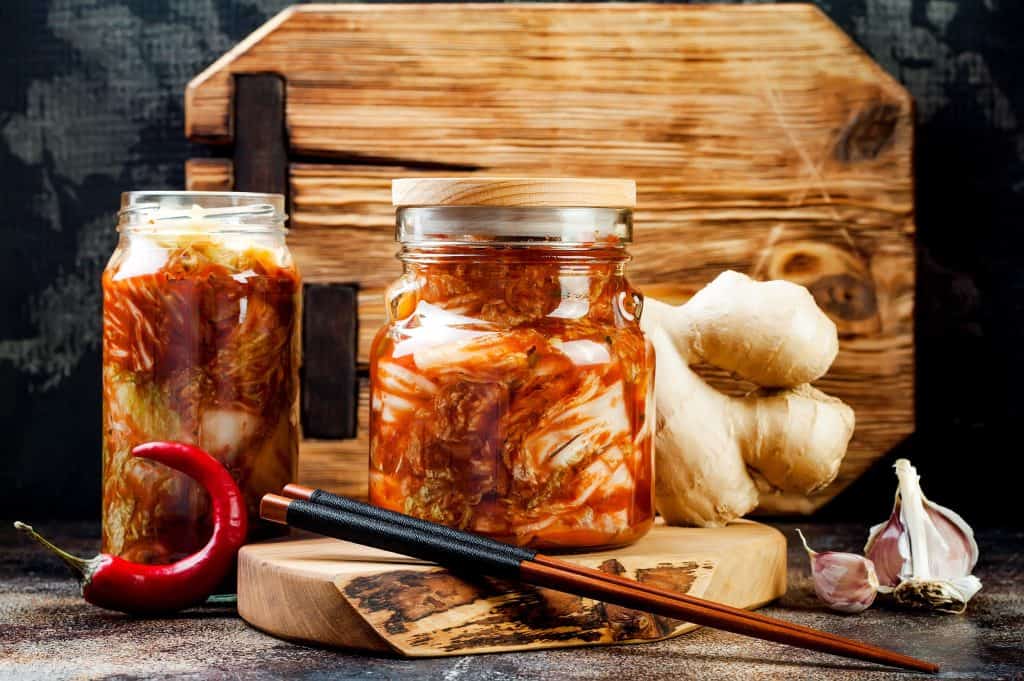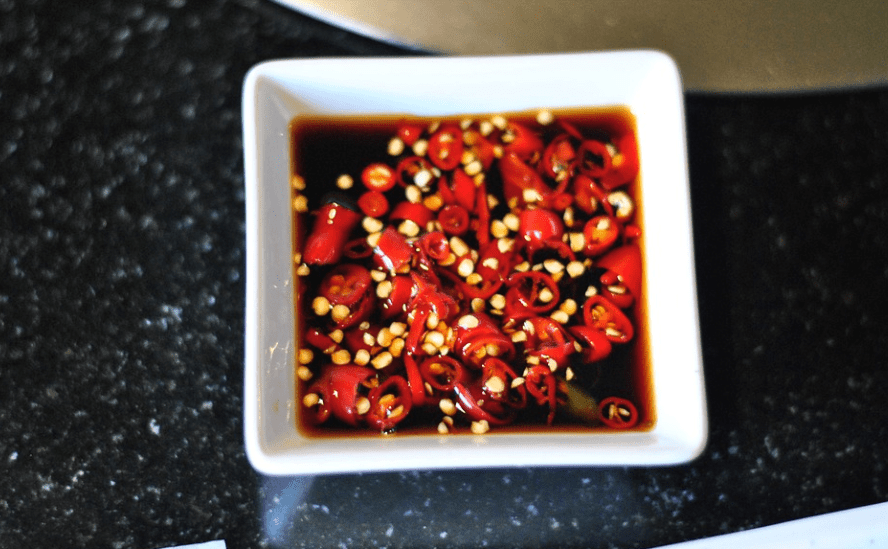Kimchi is a popular dish in Korea, though it enjoys a lot of popularity across the world owing to its flavor, high satiety, versatility, and nutritional value. It’s garnered a stellar reputation as a superfood, but it’s still “raw” and fermented – which may pose problems for some people.
Can you eat Kimchi while pregnant? You can enjoy Kimchi while pregnant, but you’ll have to stick with pasteurized Kimchi. Raw Kimchi contains a lot of good bacteria (probiotics) that are safe for pregnant women, but the fermentation process may be botched and end up cultivating some bad bacteria like E. coli.
Also, while pasteurized Kimchi is safe to eat for pregnant women, it won’t be nearly as nutritious. If you enjoy the taste, you can still enjoy eating Kimchi while pregnant. If you’re only interested in the health benefits, you’ll have to miss out on most of them for a while.
It’s worth noting that Kimchi naturally has high sodium levels – something that needs to be tightly regulated for pregnant women. You’ll have to limit your servings while pregnant, even when eating pasteurized Kimchi.
As we said earlier, Kimchi is a popular superfood. A lot of this is due to the good bacteria it carries, but the risk of contamination and food poisoning isn’t one pregnant women should take lightly. We’ll go over the pros, cons, and considerations of eating Kimchi during pregnancy down below.
Is it Safe to Eat Kimchi While Pregnant?
Kimchi and Bacteria (both Good and Bad)

Kimchi is a staple of Korean cuisine, made with vegetables like cabbage, radish, and cucumber. It’s also seasoned with plentiful spices, chili peppers, and salt – all of which is important to note.
Kimchi is “raw” and develops through fermentation, which ends up cultivating probiotics that are great for digestive health. Unfortunately, this also gives it a small, but noteworthy chance of contamination from less desirable bacteria, like E. coli or Salmonella. Outbreaks of E. coli have occurred in South Korea through tainted Kimchi, so the risk of it remains significant.
Both of these undesirable bacteria can cause stomach cramps, diarrhea, and even induce vomiting – which is terrible for regular conditions, but downright dangerous for pregnant women!
Thankfully, this problem can be treated. You can safely eat Kimchi while pregnant – so long as it has been pasteurized first. That doesn’t mean all the benefits remain intact, though.
Kimchi: Unpasteurized vs Pasteurized
Most Kimchi out in the market is unpasteurized, as this provides the snack with its main selling point – plentiful probiotic bacteria. This helps your gut bacteria out, improving digestive health.
Pasteurizing Kimchi kills potential contaminants, but the treatment won’t discriminate between good and bad bacteria. That means that you can safely eat pasteurized Kimchi while pregnant, though this comes at the cost of it losing a ton of nutritional value.
If you enjoy the taste of Kimchi, you’re in luck. But if you wanted it solely for the health benefits, there won’t be much to be found – and you’d have to contend with high sodium levels too!
Other Considerations

Kimchi is a popular superfood of choice, but it does have some key drawbacks to bear in mind.
Kimchi usually makes use of some form of seafood – shrimp or even fish sauce – for flavoring, which boasts high sodium content. Pasteurization won’t get rid of this, so you’ll need to moderate how much Kimchi you’ll eat while pregnant.
While on the topic of seafood, it’s important to note that pregnant women should also be cautious when consuming shellfish, such as crawfish, due to potential bacteria and high levels of sodium.
Kimchi also makes generous use of chili peppers, which can cause nausea, heartburn, or acid reflux. Even if you enjoy Kimchi, be sure to eat it slowly to avoid overwhelming your body.
Final Thoughts
Kimchi is an amazing, versatile snack with a lot of health benefits. Pregnant women can still eat Kimchi provided they stick to modest portions and ensure it’s been thoroughly pasteurized. Eating unpasteurized Kimchi risks the mother and fetus being exposed to dangerous bacteria, such as E. coli or Salmonella. While this is rare to happen, it’s not unheard of – so don’t take the risk.
While pasteurized Kimchi should be safe for pregnant women to eat, this is only on a general basis. There will be certain exceptions this article can’t cover, so be sure to consult your ob-gyn first.